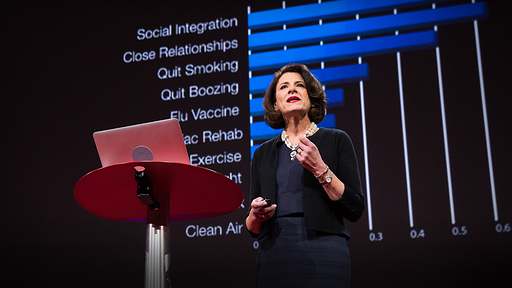Susan Pinker reveals how in-person social interactions are not only necessary for human happiness but also could be a key to health and longevity.
Why you should listen
In her award-winning book The Sexual Paradox, psychologist Susan Pinker argued that biological differences could play an unexpectedly large role in creating classroom, lifespan and workplace gender gaps. With The Village Effect, she tracks another current: how social, face-to-face interactions are critical not only for our happiness but also for our survival, and how technology can isolate us from these life-saving bonds. As she writes: "Neglecting to keep in close contact with people who are important to you is at least as dangerous to your health as a pack-a-day cigarette habit, hypertension or obesity."
In addition to her books, Pinker writes a column for the Wall Street Journal, "Mind and Matter," which illuminates surprising advances in human behavior research. Pinker’s numerous writings (including her weekly columns "Problem Solving" and "The Business Brain") have appeared in the Guardian, the New York Times and Financial Times, among many others.
What others say
“Drawing on scores of psychological and sociological studies, Pinker suggests that living steeped in face-to-face contact and physical proximity is the key to health, while loneliness is less an exalted existential state than a public health risk. Smart readers will take this book out to a park to enjoy in the company of others.” — The Boston Globe, April 30, 2014

